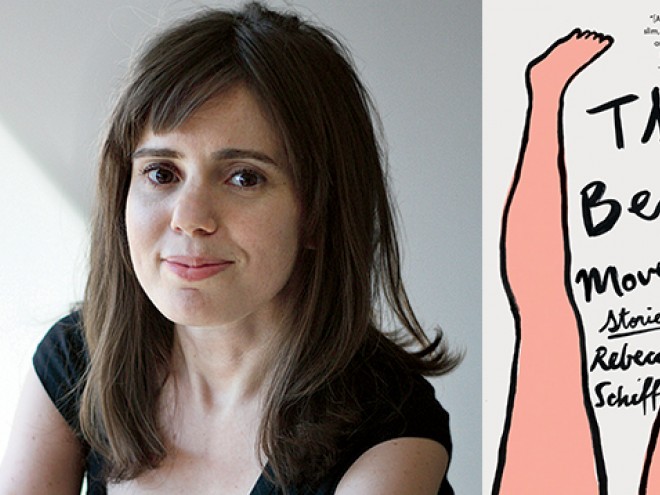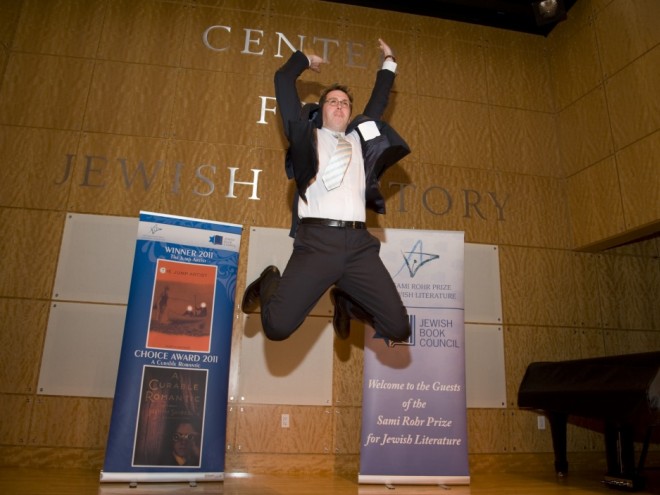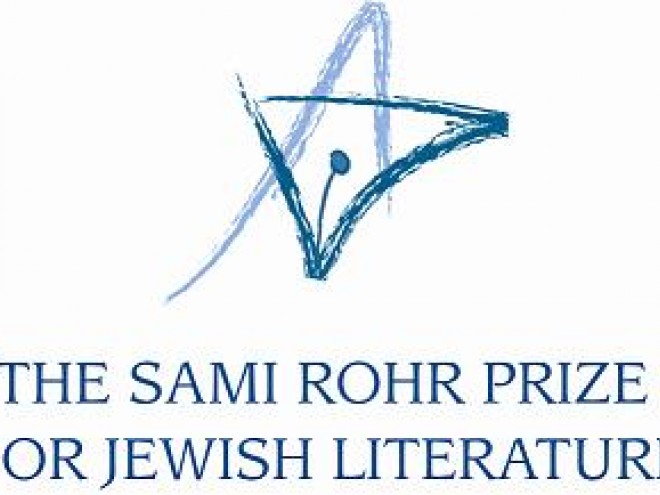
Jewish Book Council is proud to introduce readers to the five emerging fiction authors named as finalists for the 2017 Sami Rohr Prize for Jewish Literature. Today, we invite you to learn more about Idra Novey and her book, Ways to Disappear, a novel about a Brazilian novelist who goes missing and her daughter, son, and translator’s hunt to find her.
A warm congratulations to Idra and the other four finalists: Paul Goldberg, Adam Ehrlich Sachs, Rebecca Schiff, and Daniel Torday. Join Jewish Book Council on May 3, 2017 at The Jewish Museum for a discussion with the authors and announcement of the recipient of the $100,000 Sami Rohr Prize for Jewish Literature! Register for free tickets here »
What are some of the most challenging things about writing fiction?
Like children, works of fiction are constantly evolving. What a draft urgently needs in the morning is likely not what it will urgently need in the afternoon and the challenge it presents the following week will be something else entirely. I find once I address an aspect of a draft that feels challenging, another challenge immediately presents itself that feels even more insurmountable, but that is also the allure of writing fiction, the continual surprises each story presents.
What or who has been your inspiration for writing fiction?
I came to fiction from translation and the writers I’ve translated have been my teachers. It was while translating the mesmerizing sentences of the Brazilian writer Clarice Lispector that I began to draft the first sentences of a novel of my own.
Who is your intended audience?
Readers who are open to surprise, who enjoy the adventure of starting a novel for one reason and then, ultimately, loving the book for another reason entirely.
Are you working on anything new right now?
Yes, I’m at work on a second novel.
Charlotte, by David Foenkinos, about the young artist Charlotte Salamon who was killed in Auschwitz at the age of 26. The novel was an international bestseller but hasn’t had a robust reception in the United States, as so often happens with fiction in translation here. But it’s extraordinary novel. I already want to read it again.
Top 5 favorite books
I find it hard to rank books like race horses. The best books I read this week are:
Charlotte, mentioned above, by David Foenkinos
Francine Prose’s masterful and mischievous Mister Monkey
When did you decide to be a writer? Where were you?
I grew up in a backward, dying Rust Belt town where most people were as wary of Jews and other outsiders as they were of art and literature.
In high school, I wrote the first — and I think only — student-written play ever performed at my football-obsessed public school. No one but the other theater club kids in the play and their families attended, but the intimacy of the event felt subversive. There is a freeing joy in proceeding with a work of art regardless of the size of one’s audience.
It was in that empty theater in rural Pennsylvania, at 16, that I first had a strong sense that this is what I wanted to do with my life, that I would go on finding joy in writing and sharing that writing regardless of how many people living around me cared about literature or not.
What is the mountaintop for you — how do you define success?
I try, every day, to stay with the definition of success I felt at the school auditorium described above: to continue being capable of sitting down and taking new risks as a writer, and enjoying it.
How do you write — what is your private modus operandi? What talismans, rituals, props do you use to assist you?
A good cup of tea is essential. And a window.
What do you want readers to get out of your book?
Something they didn’t expect to get out of a novel about a missing woman’s adult children and her translator disagreeing about who exactly it is they are looking for. And something I didn’t expect them to get out of such a novel either.
Idra Novey is the author of the novel Ways to Disappear and Exit, Civilian, selected for the 2011 National Poetry Series. Born in western Pennsylvania, she has since lived in Chile, Brazil and New York. Her fiction and poetry have been translated into seven languages and featured on NPR’s All Things Considered and in Slate, The Paris Review, StoryQuarterly, and Guernica. She teaches in the Creative Writing Program at Princeton University.



